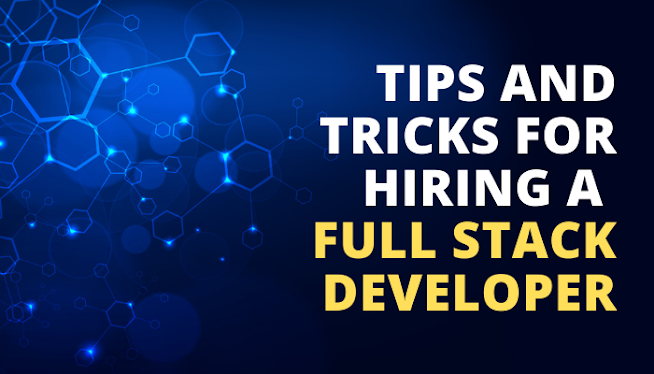Tips and Tricks for Hiring a Full Stack Developer
When it comes to hiring a full stack developer, it's important to understand the specific skills and experience needed for the role. A full stack developer should have a diverse set of technical abilities, including proficiency in multiple programming languages and experience with both front-end and back-end development.
One effective way to assess a candidate's technical abilities is to give them a coding test or ask them to complete a small development project. This will give you a sense of their coding skills and problem-solving abilities. Additionally, it's important to look for candidates with a strong portfolio of past work, as this will give you an idea of the types of projects they have experience with and their level of expertise.
Another key consideration when hiring a full stack developer is their experience with different programming languages. A good full stack developer should have experience with at least one front-end language, such as JavaScript, and one back-end language, such as Python or Ruby. They should also have experience with databases and web development frameworks.
It's also important to check references and previous work experiences. Talk to the previous employer and their team member to get a sense of how the developer worked in a team, how they approached problems and how they dealt with stress and tight deadlines.
When hiring a full stack developer, it's important to assess their technical abilities through coding tests or projects, look for experience with multiple programming languages, consider candidates with a strong portfolio, and check references and previous work experiences.
Advantages of Full Stack Development
Efficiency: Full stack developers have a broad understanding of all aspects of web development and can handle both front-end and back-end tasks, which can save time and resources for a development team.
Flexibility: With a full range of skills, full stack developers can work on any part of a project and quickly switch between tasks, making them versatile and adaptable to changing project requirements.
Better Communication: With a deep understanding of both front-end and back-end development, full stack developers can bridge the gap between different teams and improve communication and collaboration within a development team.
Cost-effective: Full stack developers can handle all aspects of web development, which means that a company doesn't need to hire a separate team for different areas of the project. This can be cost-effective in the long run.
Continuous Learning: Full Stack Developers are always learning new technologies and methodologies as they work on different projects, which means they are always up-to-date with new trends and advancements in web development.
Independent: Full stack developers can work independently and deliver complete projects, which means they don't require the help or supervision of other developers.
Full-Control: Full Stack Developers have the ability to understand and control the whole project from start to end, which means they can spot and fix any issues that may arise.
Conclusion
In conclusion, hiring a full stack developer requires a comprehensive approach to identifying the right candidate. It's important to understand the specific skills and experience needed for the role, assess the candidate's technical abilities through coding tests or projects, look for experience with multiple programming languages, consider candidates with a strong portfolio, and check references and previous work experiences. By following these tips, you can increase the chances of finding a qualified and experienced full stack developer who will be a great fit for your team.



Comments
Post a Comment